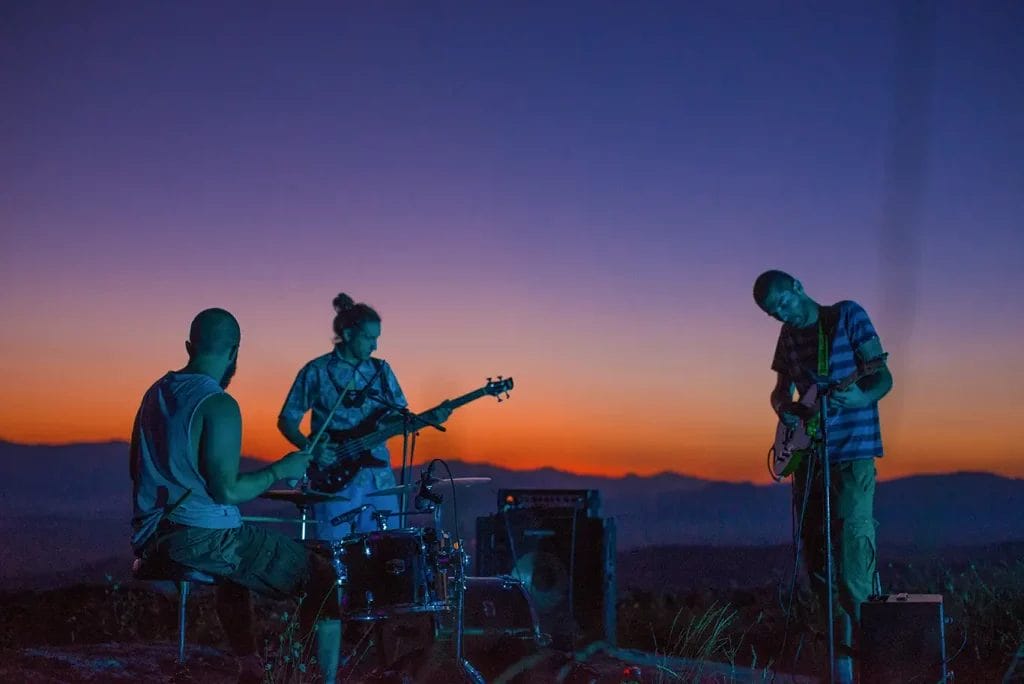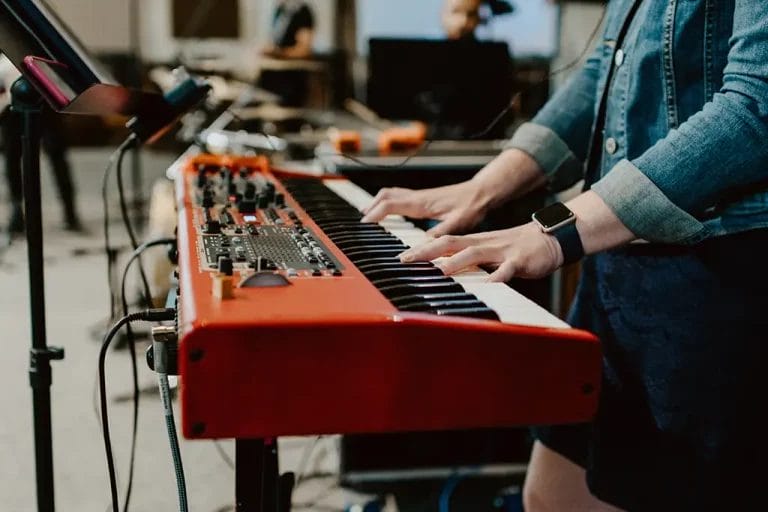Musicians and bands thrive on gigs — it’s a way to showcase your work and get to know your fans and what they like. Gigging can also be instrumental in helping you meet the right people in the industry — people who can get you a deal with a record company, agency, or promoter.
But how to get music gigs? That can be a challenge!
Don’t worry. Discover a variety of ways to get gigs, from marketing and networking to personally contacting venues and events you want to perform in.
11 Ways to Get Music Gigs, Find Fans, and Gain Exposure in the Industry
Securing gigs may seem difficult, scary, and frustrating. But if you practice and repeat these 11 techniques, you’re bound to strike a chord with venue owners and event coordinators looking for new musical acts.
1. Define Your Brand Image
Your brand identity is going to be important in your quest to get gigs. It’s going to impact whether a venue or event might want you, how you’ll promote yourself, and more.
So first, find your identity. All great musicians and artists have one. Choose a genre and refine your style. Next, brand yourself or your band with a stage name that aligns with your identity.
2. Make Music Recordings and Setlists
Here comes the fun part — making music to perform for others. We have some great tips for recording music in a studio, but you’re not limited to traditional settings when it comes to creating a demo to get gigs.
Today’s musicians have gotten out of the studio and into some pretty untraditional places to record songs with unique sounds, including:
- Hotel rooms
- Bathrooms, kitchens, basements, and bedrooms
- Stairwells
- Trainyards and subways
- Boats
- Drilling rigs
- Warehouses and industrial settings
- Sites where famous and infamous incidents occurred
And more – each one offering its own acoustic effects, moods, and impressions.
Once you’ve found your sound, create a setlist that showcases your musical style from start to finish. Lead with a strong song and arc to the final song that simultaneously concludes the set and leaves the audience begging for an encore.
Venues vary in requirements and time limits. Some may only give you 10 minutes, while others may give you 30 or longer. Some venue owners may have a rule about no explicit material, while others may be okay with it. Build more than one setlist so that you can reach out to various venues and events to get gigs.
Kay Harper, a mom musician, said up-and-coming musicians should start with covers of popular songs:
“I look at it as fishing. Use the covers as bait and once they are on the hook, you introduce them to original music.”
Pro Tip: Whether you’re performing IRL or recording at a studio, you face risks from third-party injuries to property damage. Before you gig, get musician and band insurance to protect your business and finances.
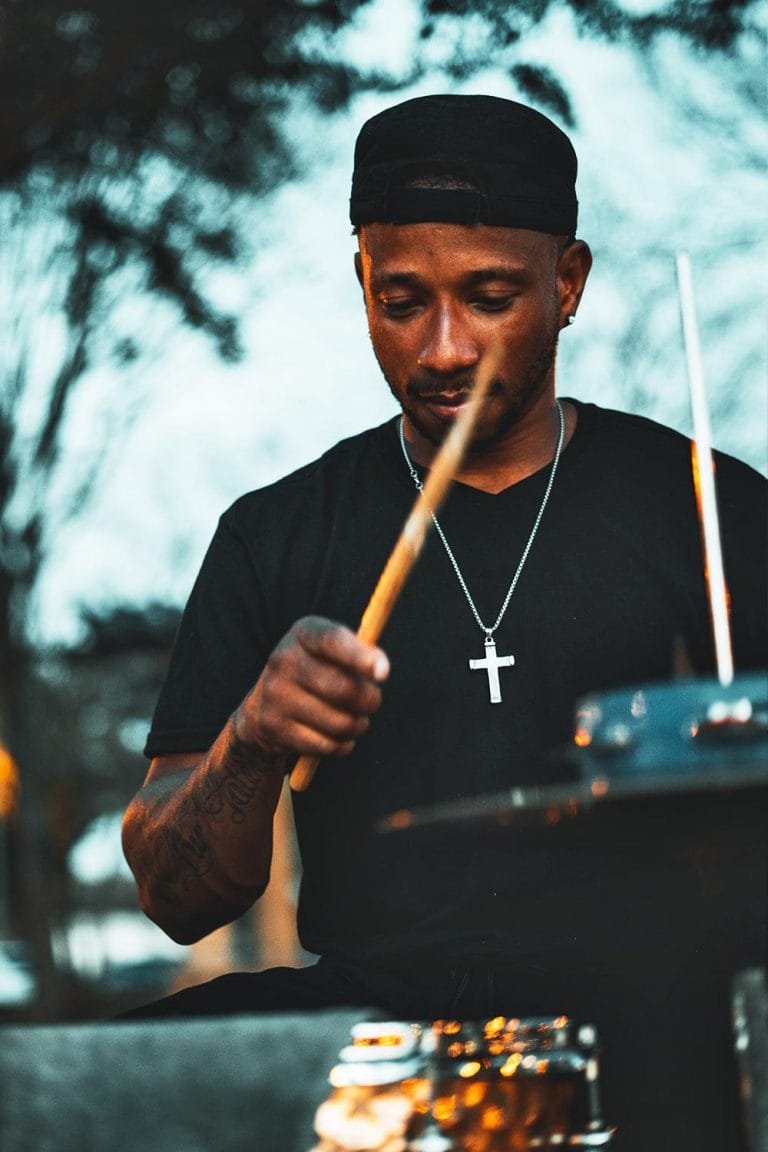
3. Create a Marketing Kit
You have a musical identity and songs to match your persona. Now, you need a marketing kit to promote yourself and book gigs. Think of it as a resume in a box with everything someone needs to know about you or your band, your music, and your musical journey.
Band marketing kits should include:
- Artist bio(s): Where you’re from, what inspired you to get into music, and what you’ve done professionally so far.
- Best songs: Link to your top songs on Spotify, SoundCloud, YouTube, Apple Music, Tidal, or other services.
- Music videos: Add links to high-quality music videos you’ve uploaded to your website, YouTube, or platforms like Vimeo.
- Press-ready messaging: Marketing and advertising copy an event organizer, venue owner, or journalist could use when they hire you to play.
- Social media profiles: Include links to your social media profiles as de facto word of mouth from your fans and followers.
- Sample setlists: Include one or more setlists that showcase your band’s versatility and ability to tailor your performance to various audiences.
- Contact details: Provide a phone number and email address where venues, event planners, media, promoters, and others can contact you.
- High-quality pictures: Everyone loves good headshots or photos. Add links to snapshots of you and your band suitable for display on venue and event posters, fliers, ads, articles, and more.
Pro Tip: Tailor the setlist and the demo video and audio clips you include in your marketing kit to the venue, planner, or promoter you’re sending it to — they’re more likely to consider your request to gig if they feel you’re a good match for their needs.
4. Contact Venues
It’s the moment you’ve been waiting for — contacting venues and setting up gigs. But it isn’t as simple as it sounds and it could be intimidating.
Visit the venue you want to perform at and take in the atmosphere. Is it a humble pub with a small stage or a fancy, wall-to-wall club with chandeliers, strobe lights, prestigious attendees, and all the works?
Does your venue host open mic nights or nights designated to local band or musician performances? Attend one of these events and scope out the performers. Take notes and prepare a pitch for the host about how you’d be an excellent act for their establishment.
If your desired venue doesn’t offer live performances, you can try to persuade them. Who knows? You could open the door for yourself and other local artists to play at this location.
Check out our blog and see if you live near one of the best cities for musicians. This resource can help you with finding out places to find venues to target.
5. Use Apps to Gain Exposure and Engage Fans
In an age of information overload, cutting through the static to get your music to the public can feel like trying to find your way out of a giant corn maze. Music and social apps can help you meet up with the right audience more easily – so use channels like these to match your musical prowess with your ideal fans.
Here’s a rundown of how musicians and bands can leverage social media and music apps to get more gigs.
Create a musician or band business page and invite your friends and fans to give it a “Follow.” You can use it to promote gig appearances, sell merch, provide concert info, and more. Post regularly, sharing videos and recordings from your gigs, recording sessions, talking about your muses and inspiration, engaging with fans, announcing awards, and so on.
Facebook is also a great place to reach your target audience with low-cost paid ads and promoted posts. It allows you to tailor exactly who sees your ads, and when, in order to get you more exposure and promote attendance at your performances.
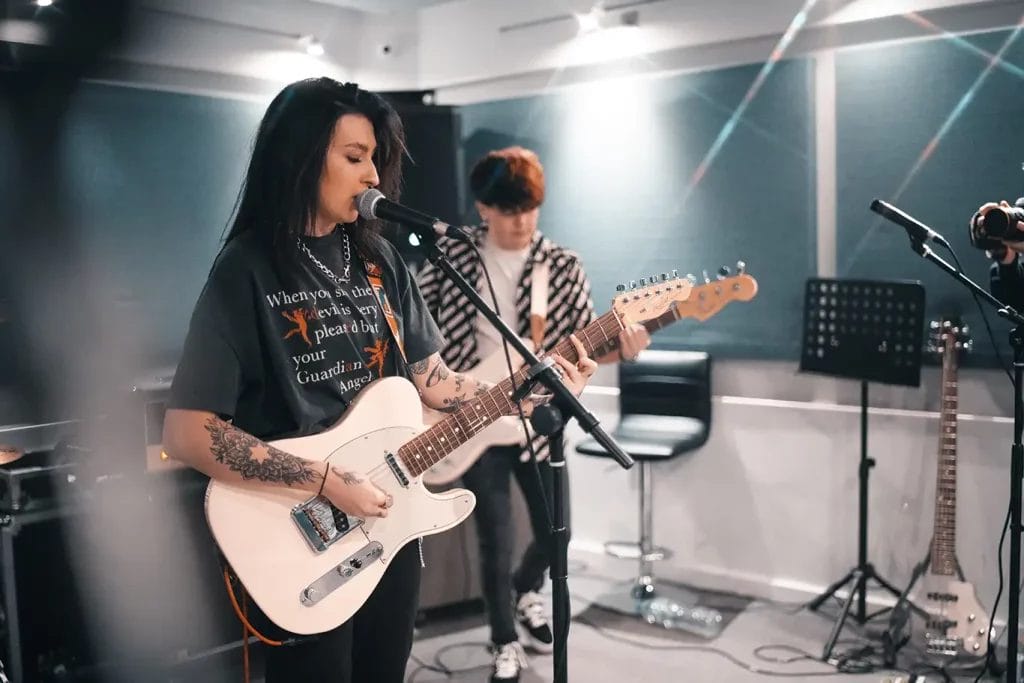
Spotify
Spotify is a big app but getting your music on Spotify doesn’t have to come with a big price tag. It also gives your band credibility, as you can link to your music on Spotify in your marketing kit and pitches to venues, promoters, and more.
SoundCloud
SoundCloud is a service that allows independent artists to post singles and albums for others to hear for free. To increase streams, artists can use SoundCloud’s Next Pro feature to match their music with 100 potential listeners.
X (formerly Twitter)
Use X to post tweets with performance videos and photos. Like other social media platforms, you can use relevant hashtags for better visibility amongst followers and other X users. With a premium subscription, you can also create paid ads for more reach and engagement.
Use photos and videos to showcase your gigs, and behind-the-scenes stuff, such as prepping or rehearsing for a gig. Play with different photo filters to give your media a standout look.
TikTok
Use this social media platform to create short, one-minute videos. You can showcase short clips of music videos or post videos with some of your best songs to showcase your musical style. And try reaching out to TikTok influencers who might be interested in featuring your songs in their videos.
Mom-and-musician Kay Harper said,
“I recently started reaching out to TikTok influencers to use my songs in their videos and what a great idea. I’ve got multiple hits already and they are soon going to feature my song in their videos.”
6. Build Connections & Collaborate
As the old saying goes, “Sometimes it’s not what you know, but who you know.”
Connecting with other people in the music industry – fellow musicians, promoters, agents, media, venue owners, and event organizers – builds your network and strengthens your chances of getting more gigs. And collaborating with other musicians has other perks.
For example, if another musician or band has to cancel last-minute, they can suggest that the venue tap you to take their place, making it an easy way to get gigs. Likewise, working on songs with other artists gives you exposure to their fans, who may then search for more of your work.
7. Take to the Streets

This might come as a surprise to you. Some pretty big names got their start as buskers: Beck, Jewel, Ed Sheeran, Tracy Chapman, and even the legendary B.B. King.
If local ordinances allow, busking is a legitimate way to bring your band or artistry to the attention of local music-lovers and venue owners. To get started busking, get proper licensing, insurance, plan your playlist, and make sure you have marketing materials on hand for people to take or distribute.
8. Volunteer
Getting paid is great, but sometimes it’s more important to gain exposure. Consider playing music or helping out at a local event like a food or clothing drive, community car wash, or school fundraiser. Booking pro bono gigs like these show that you care about your community and the causes and issues that matter to them.
For example, people without food may stop by a soup kitchen or shelter for a warm meal, especially around holidays like Thanksgiving or Christmas. Listening to some of your music while eating says “someone cares,” which may also cheer them up.
Playing at a school fundraiser is an act of altruism that could lead someone to book you for their corporate holiday party. But don’t stop at the exposure volunteering gives you at the event. Leverage the story with PR (public relations) marketing by publishing a press release, covering the story on your socials and marketing kit, and so on.
When starting out, Bob Bradley — a former full-time musician and publicist for Bradley Public Relations & Marketing — advised:
“Make sure to keep an open mind when first starting out. Don’t expect to make much money, if at all, or expect to play in front of many people.”
9. Work with Agents and Promoters
If you’re established but want to get next-level gigs, you might have to kick things up a notch by finding a music agency or promoter for extra help. Agents can help you land ideal fees, negotiate costs, and establish concerts. But working with promoters and agents comes with pros and cons:
- It can be easier to get performance and recording opportunities
- You can get better-paying and more high-profile gigs
- A percentage of your earnings goes to the agent or agency
- Some promoters may only be looking out for their interests
Getting gigs might be the most challenging part of advancing your music business. The right agency or promoters can take your career to new heights while you stay focused on making your music portfolio.
Pro Tip: If you’re not savvy as far as contracts or legal terms, you risk an agency taking advantage of your desperation for gigs and fame. It’s best to have a lawyer review and explain the terms of agency and promoter contracts to you before you sign.
10. Take Care of the Business Side
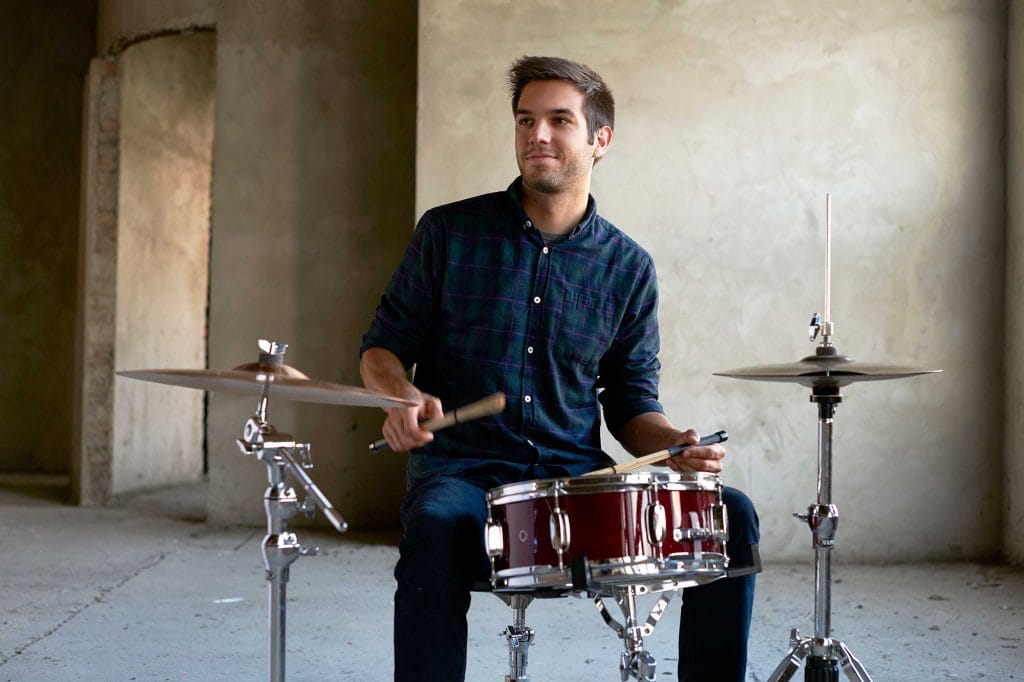
While getting your musical career off the ground, don’t skip the administrative side of things. You need to check off some pretty important boxes here if you want a long and lucrative career in the music business:
- Decide on a great band name and trademark it
- Make sure all bandmates sign off on an official written agreement to avoid misunderstandings and tension down the road
- Get your federal, state, and any local business registrations taken care of
- Create contract templates you can use to get gigs
- Set your rates
- Get the gear you need to gig – and so on
This is all part of starting a band.
Eye-yoob of Lebanese band Eye-yoob & Les Américains advises,
“I personally believe that talent is only 20% of the success of musicians. The other 80% is all the work you put into building connections, online presence, management and leadership skills, and much more. In addition, make sure to secure a job with a steady income.”
11. Meet Venue Requirements Ahead of Time to Get More Gigs
Most of the places and people who will hire you for gigs won’t consider hiring your band or musician business if you don’t have musicians liability insurance. Insurance Canopy makes this easy and affordable with event-based policies from $59 or year-round protection starting as low as $18.50 per month.
Why do venues require insurance? Risks can creep up almost anywhere, and if someone gets hurt because they tripped over your gear, they could name both your band and the venue in a lawsuit. Venues and event planners almost always require performers to have a liability policy in place and to add them as an additional insured for scenarios just like this.
Checking off the box of getting your policy checks off the venue’s box ahead of time, which could give you an edge in booking work.
Common Questions About How to Book Music Gigs
How Do I Get My First Music Gig?
To get your first music gig, make an online portfolio and sample playlist. Then reach out to venues, wedding and corporate event planners, and the media about your band’s availability. Network in your community and take advantage of college or community bulletin boards to post fliers. Use social media to create demand by finding and engaging with fans.
Do I Need Music Gig Insurance?
Of course! Music gig insurance is designed to protect you from costly claims that could arise from a misstep or mishap at one of your performances. For example, you might damage a venue’s floor while setting up your instruments and gear, or someone could trip over one of your cords, injure themselves — and come after you to pay the bills.
How Do I Approach a Venue for a Gig?
There are several ways to approach venues for a gig:
- Email your digital marketing kit to the venue owner or event planner
- Call and ask for an opportunity to perform
- Visit a venue in person and talk with the owner or gig organizer
- Contact the venue via social media or a website form

